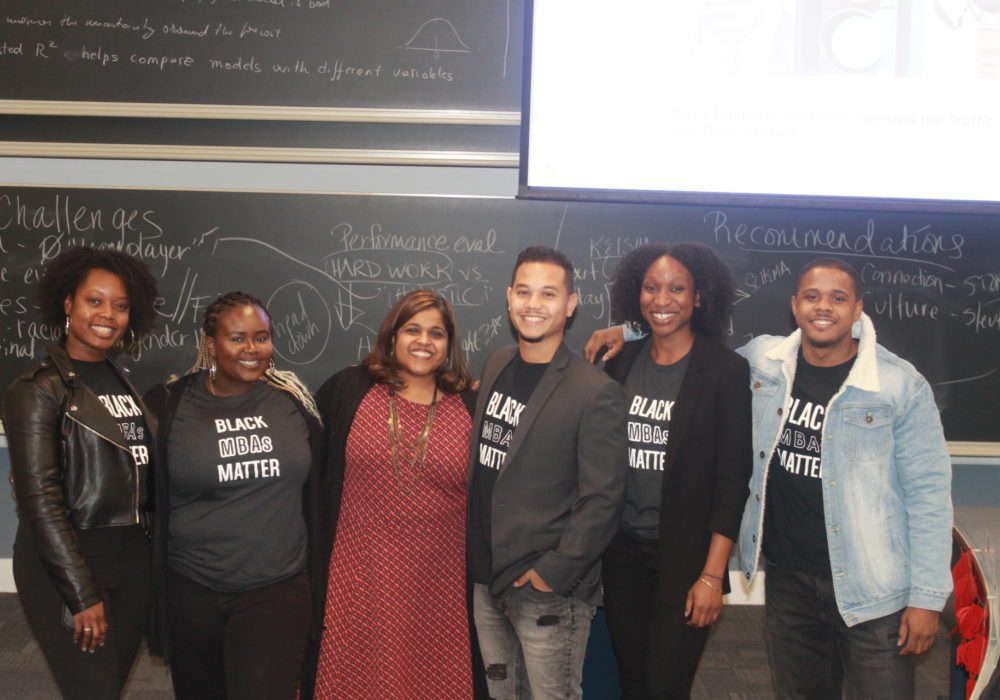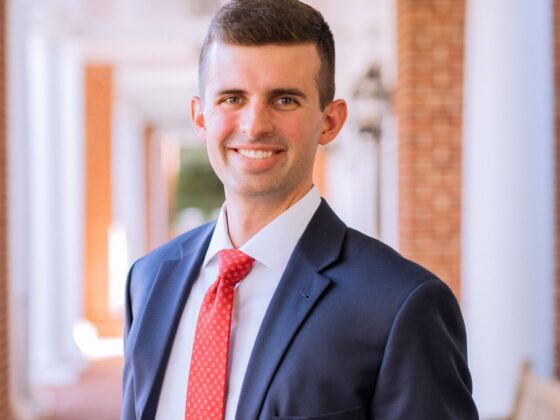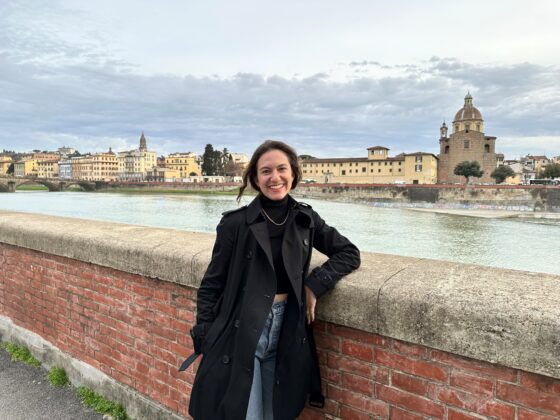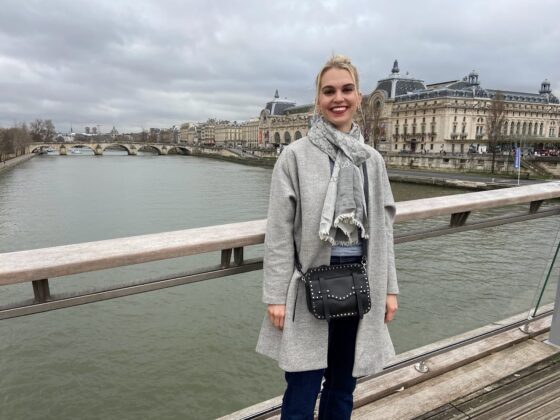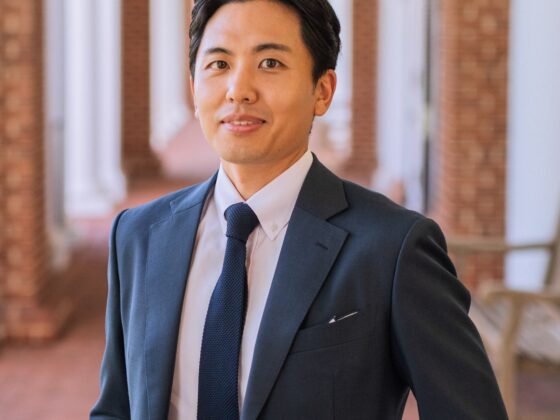By Jean Yoon
Aaron Wilson (Class of 2020, center right in above photo) is a Second Year student who will join McKinsey & Co. after graduation this May. He participated in a Darden Worldwide Course in Cuba and went on exchange to IAE Business School in Argentina during Quarter 2. Aaron took some time to share his key takeaways on leadership and self-discovery from his experiences abroad:
Tell us a little bit about your background. How did you decide to come to Darden?
I attended UVA’s McIntire School of Commerce and played varsity football during my undergraduate years at UVA, so I already had many connections to UVA before coming to Darden. After attending UVA, I worked at a media advertising agency managing analytics for Sony Pictures in California, segmenting and analyzing data for audience targeting. I didn’t initially intend to return to Charlottesville, but after researching MBA programs, I found that Darden offers one of the best MBA programs for consulting. Since consulting was the field I wanted to pursue, I took the opportunity to return to the East Coast and attend Darden.
What are some global academic opportunities you’ve participated in at Darden?
Darden’s courses abroad offer ways to gain global perspectives and to learn and practice cultural fluency. I came to Darden intending to participate in a Darden Worldwide Course (DWC) because of the Batten Foundation Darden Worldwide Scholarship. I participated in the Cuba DWC last May because of its outstanding faculty leader, Robert Carraway, and its curricular focus on entrepreneurship. I visited Cuba once before for personal travel, but the DWC gave me the unique opportunity to learn about the country from a business and historic perspective.
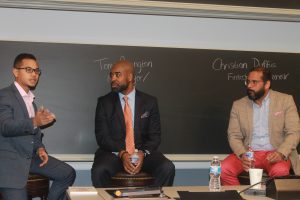
Beyond Darden’s global academic courses, I am also a member of many cultural affinity clubs, including the Darden South Asia Society, Darden African Business Organization and the Global Business and Culture Club. I am the Vice President of Events for the Black Business Student Association and a member of the Student Admissions Committee where I have gained various global perspectives through interviewing international students and students abroad.
What led you to go on exchange to IAE Business School in Argentina?
I never had the opportunity to go on an exchange program during my undergraduate years at UVA because I played football. I figured that once I graduate and start my career I might not have as much time as I do now to explore different cultures and countries. I decided to go on exchange to gain a different learning experience from the classroom setting at Darden. The exchange program in Argentina was probably my favorite international experience I have ever had. I was the only Darden exchange student at IAE, and the only American exchange student in my cohort, and I had never even been abroad by myself before. My experience in Argentina was so free, so fast and so experiential.
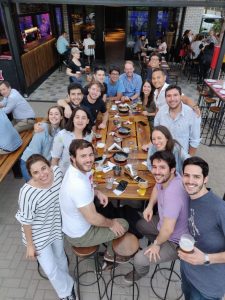
What experiences do you remember most strongly from this program?
The class size in the program was 35 full-time students and five exchange students, including me, so it was a close-knit and engaging community. At the start of the program, the school threw an asado (barbecue) for the exchange students, and seeing the Argentinians’ pride in teaching and sharing their culture really affected me. Another experience that stands out to me is the executive simulation. The program curriculum at IAE includes an executive simulation class modeled after EPADE’s program in Mexico. Compared to Darden’s marketing strategy simulation, IAE’s simulation involved many other aspects of business such as finance, logistics and operations. Coming to IAE, I had a strong background in marketing, but the simulation enveloped me in a holistic business experience.
What key lessons did you learn from studying abroad?
Immersion in an exchange program allows you discover more about yourself, like how you operate and what you enjoy in a new culture and different atmosphere. Outside of the classes, I learned so much about Argentina during my time there. For example, I read about Argentina’s economic inflation in case studies at Darden, but living in Argentina, I met people and heard their individual stories about how the economic trends on paper affected their monthly paychecks in real life. My understanding of the situation changed by experiencing it in person rather than simply reading about it, and I learned how important it is to remember that this holds true in many global scenarios.
Additionally, I learned that peoples’ environments have a major influence on their desires and interests, and that original ideas often come from our surroundings and upbringing. Many entrepreneurs I met in Argentina worked in meat and wine production, given the country’s strong beef and wine industries. This is different from the trend back in the U.S., where many entrepreneurs I meet are involved in the technology space.
Why is a global education important to you?
Global education is important because learning global perspectives is necessary for understanding diverse ideas and learning effective leadership. With globalization, people will need to know how to work with others’ various cultural and personal perspectives. The simulation team I worked with at IAE was the most culturally diverse of the simulation teams. Due to this diversity, we had many different perspectives that strengthened our resource pool over other teams, but we also had more differences to overcome, and, initially, our different working styles clashed. However, we eventually learned each other’s approaches to work and became the top performing team in the simulation.

Do you have any advice for students considering participating in an exchange program?
I advise students to think about exchange programs as not only a unique academic opportunity, but also an experience that will teach you more about yourself and the world. Participating in an exchange program enriches students’ MBA educational experiences by learning different global business perspectives and by visiting locations all around the world to see these perspectives in action. I would definitely recommend Buenos Aires as an exchange location because it is easily livable with a layout reminiscing New York and Atlanta. In my opinion, Buenos Aires is unique in that it deviates from the image of a traditional Latin American city and feels more like a European city.
I advise prospective students to take full advantage of opportunities available to them to experience global cultural engagements whether at Darden through club activities or abroad through the exchange program or global immersion course.

